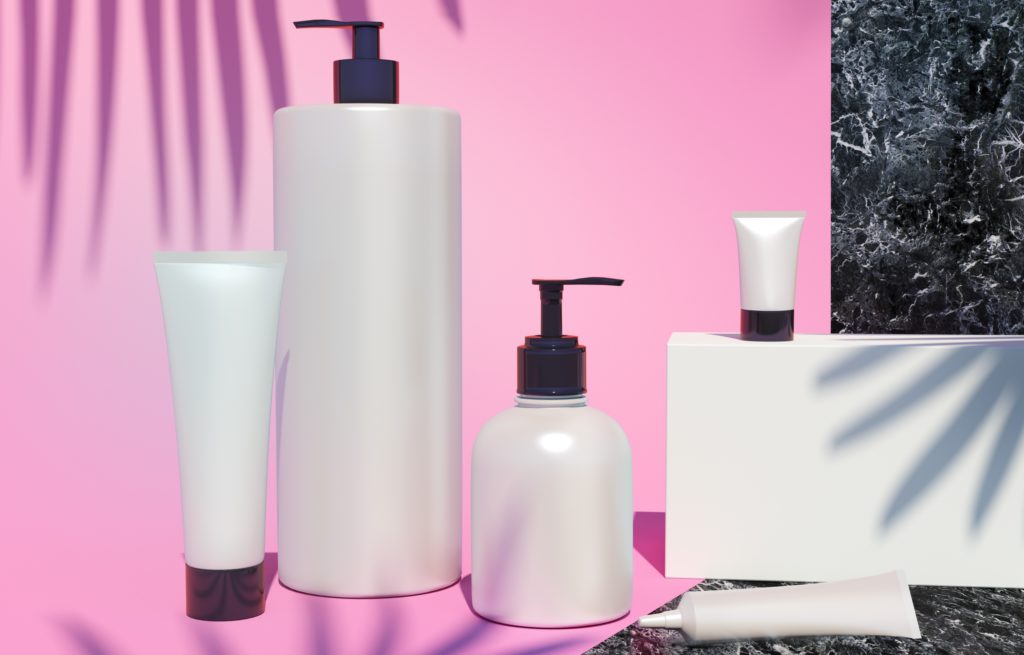Cosmetics Regulations and Enforcement
Cosmetics Regulations and Enforcement by FDA
Cosmetics: Regulations and Enforcement by FDA
The regulation of cosmetics by the U.S. Food and Drug Administration (FDA) is primarily governed by the Federal Food, Drug, and Cosmetic Act (FD&C Act), the Fair Packaging and Labeling Act, and the Food and Drug Administration Amendments Act of 2007.
Under the FD&C Act, cosmetics are defined as articles intended to be rubbed, poured, sprinkled, or sprayed on, introduced into, or otherwise applied to the human body for cleansing, beautifying, promoting attractiveness, or altering the appearance. Examples of cosmetics include makeup, moisturizers, shampoos, and hair dyes.
The FDA does not pre-approve cosmetics before they are sold to consumers, but it does have the authority to take action against cosmetic products that are misbranded (i.e., their labeling is false or misleading) or adulterated (i.e., they contain harmful or prohibited ingredients).
Cosmetic manufacturers are responsible for ensuring that their products are safe for consumers to use and that they comply with all applicable labeling requirements. The FDA recommends that manufacturers follow good manufacturing practices (GMPs) to ensure the quality of their products.
In addition, the FDA maintains a voluntary reporting program called the Voluntary Cosmetic Registration Program (VCRP), which allows cosmetic manufacturers to provide the agency with information about their products and ingredients.
Cosmetic products and ingredients, other than color additives, do not need the approval of the U.S. Food and Drug Administration (FDA) before they go on the market in the U.S. Also, companies and individuals importing products considered to be solely cosmetics are not required to register with FDA, and a registration number is not required for importing cosmetics into this country.
However, FDA can pursue enforcement action against products on the market that are not in compliance with the law, or against firms or individuals who violate the law. FDA can and does inspect cosmetic manufacturing facilities to assure cosmetic product safety and determine whether cosmetics are adulterated or misbranded.
In-Depth Coverage: Cosmetics Import Requirements
Although the U.S. Federal Food, Drug, and Cosmetic Act (FD&C Act) does not subject cosmetics to premarket approval, the FDA does collect samples for examination and analysis as part of cosmetic facility inspections, import inspections, and follow-up to complaints of adverse events associated with their use. FDA may also conduct research on cosmetic products and ingredients to address safety concerns.
In general, except for color additives and those ingredients that are prohibited or restricted by regulation, a manufacturer may use any ingredient in the formulation of a cosmetic, provided that the ingredient and the finished cosmetic are safe under labeled or customary conditions of use, the product is properly labeled, and the use of the ingredient does not otherwise cause the cosmetic to be adulterated or misbranded under the laws that FDA enforces.
Companies and individuals who manufacture or market cosmetics have a legal responsibility for the safety and labeling of their products. In general, all imported cosmetics must comply with the same laws and regulations that apply to those produced domestically.
Overall, the FDA's regulation of cosmetics aims to protect consumers from unsafe or improperly labeled products, while allowing manufacturers to continue to innovate and develop new products.
In-Depth Coverage: Marketing and Advertising Compliance
- Federal Trade Commission (FTC) Advertising Rules
- Made in USA Standard
- FTC Regulation on Environmental Claims
- Adverting and Marketing on the Internet
- Label Claims for Conventional Foods and Dietary Supplements
- Dietary Supplement Advertising: What is FTC's Truth-in-Advertising Law?
- USDA Country of Origin Labeling (COOL)
- FTC Rules & Regulations on Food Advertisement
Adulterations and Misbranded Cosmetics
The FD&C Act prohibits the adulteration or misbranding of cosmetics, and the introduction, receipt, and delivery of adulterated or misbranded cosmetics including imported cosmetic products into the US. If a cosmetic that is introduced into, in, or held for sale after shipment in the U.S. is found to be adulterated or misbranded, FDA may take enforcement actions, such as seeking an injunction (which could prevent a company from making or distributing the violative product), seizing the violative product, or seeking criminal penalties. Additionally, the FDA has the authority to prevent imports of violative cosmetic products from entering the United States.
FDA’s authority to regulate cosmetics also includes the authority to conduct inspections of cosmetic establishments, without notifying the establishments in advance, as long as the inspections occur “at reasonable times and within reasonable limits and in a reasonable manner.” FDA conducts inspections to assure product safety and to evaluate cosmetic products for potential adulteration or misbranding violations.
The agency may decide to inspect a facility based on consumer or industry complaints, the establishment’s compliance history, or FDA surveillance initiatives. The agency may collect samples for examination and analysis during plant and import inspections, and follow up on complaints of adverse events alleged to be caused by a given cosmetic product. The agency does not have a required schedule for inspecting cosmetic facilities.
In-Depth Coverage: Country of Origin
- Country of Origin of Imported Merchandise
- Customs Ruling: Country of Origin
- Country of Origin: Food Products
- Country of Origin: Chemical and Pharmaceutical Products
- Country of Origin & Country of Manufacture: CBP vs. FDA
- Country of Origin: Substantial Transformation or Country of Assembly Test
- Country of Origin and Free Trade Agreement
- Country of Origin and Section 301
Cosmetics Adulteration
A cosmetic is deemed adulterated—and potentially may be subject to FDA enforcement action if it:
- “bears or contains any poisonous or deleterious substance which may render it injurious to users under the conditions of use prescribed in the labeling”;
- consists of “any filthy, putrid, or decomposed substance”;
- was “prepared, packed, or held under insanitary conditions whereby it may have become contaminated” or “rendered injurious to health”;
- is in a container composed of “any poisonous or deleterious substance which may render the contents injurious to health”; or
- contains an unsafe color additive, except for hair dyes.
FDA has issued rules restricting the use of some ingredients in cosmetic products, such as those that it has determined are poisonous or deleterious, which would cause the cosmetic to be adulterated.
One example of an adulterated cosmetic is the use of henna for a temporary skin decoration known as mehndi. While the color additive used in these products is approved for hair dye, it is not permitted for skin contact. Therefore, under FDA regulations, the use of the dye product in mehndi makes the product “adulterated.”
In-Depth Coverage: Importing Medical Device
Misbranding and Mislabeling Claims
Cosmetic products that are defined as consumer commodities by the Fair Packaging and Labeling Act (FPLA) and that do not comply with the FPLA requirements are considered misbranded under the FD&C Act.
Consumer commodity (retail) cosmetic products subject to FPLA are required to bear a label with the identity of the product and the name and place of business of the manufacturer, packer, or distributor, as well as the net quantity of contents on the label’s principal display panel.
The net quantity of contents information on a package’s label must be declared in a legible type size that is uniform for packages of about the same size.
FDA’s ingredient labeling rules, issued under the authority of the FPLA, require ingredients to be listed on cosmetic products in descending order of predominance.
Additionally, under the FD&C Act, cosmetics will be deemed to be misbranded, if
- the “labeling is false or misleading in any particular”;
- the label lacks required information;
- required labeling information is not prominently placed with conspicuousness and “in such terms as to render it likely to be read and understood by the ordinary individual under customary conditions of purchase and use”;
- the “container is so made, formed, or filled as to be misleading”;
- use of a color additive does not conform to packaging and labeling requirements; or
- the packaging or labeling violates the regulations issued under the Poison
Color Additives and Cosmetics
Color additives are subject to a strict system of approval under U.S. law (FD&C Act). Except in the case of coal-tar hair dyes, failure to meet U.S. color additive requirements causes a cosmetic to be adulterated. Color additive violations are a common reason for detaining imported cosmetic products offered for entry into this country.
Confirm the status of color additives before use. There may be changes in color additive approvals and changes in the uses and restrictions that apply to a color additive. Such changes may affect colors subject to certification as well as colors exempt from certification.
When purchasing colors subject to certification, confirm that the manufacturer has requested certification. However, no matter whether a particular color is subject to certification or exempt from certification, U.S. law prohibits its use in cosmetics (or any other FDA-regulated product) unless it is approved specifically for the intended use.
For example, you may not use a color additive in the area of the eye unless the regulation for that additive specifically permits such use. Also, no color additive may be used in injections unless its listing in the regulations specifically provides for such use. This includes injection into the skin for tattooing or permanent makeup. The fact that a color additive is listed for any other use does not mean that it may be used for injections. There are no color additives listed in the regulations as approved for injections.
Read more: Color Additives and Cosmetics: Fact Sheet
In-Depth Coverage: Importing Food Products
- What is FDA Food Safety Modernization Act (FSMA)?
- Prior Notice of Imported Foods
- FDA Food Facility Registration
- Risk-Based Preventive Controls for Human Food
- Risk-Based Preventive Control for Animal Food
- Protect Food against Intentional Adulteration
- What is Foreign Supplier Verification Program (FSVP)?
- What is FSMA Produce Safety Rule?
Enforcement
Consumer organizations and interested persons may submit citizen petitions to the FDA asking the agency to determine that a cosmetic is adulterated if it contains a particular deleterious substance. If a cosmetic is deemed adulterated or misbranded, FDA may take enforcement actions. Enforcement actions may include seeking an injunction (which could prevent a company from making or distributing the violative product), seizing the violative product, or seeking criminal penalties. Additionally, a cosmetic company may be subject to a product liability lawsuit for a product that could be deemed to be adulterated, misbranded, or that lacks adequate warning statements.
Customs Clearance and Import Requirements
- Entry of Imported Merchandise
- What is Section 321 Entry?
- What is Automated Commercial Environment (ACE)
- What is an Automated Broker Interface (ABI)?
- Who is Ultimate Consignee?
- What is Non-Resident Importer Program?
- Country of Origin of Imported Merchandise
- What is the Country of Assembly?
- What is the FDA's Country of Manufacture?
- Marking of Country of Origin on U.S. Imports
- What is Customs Bond?
- Reconciliation Prototype and Bond Rider
- Who Needs a Customs Broker?
- What is Customs Ruling Program?
- Classification of Imported Goods
- How is imported merchandise appraised?
- What are Import Quotas?
- What are Trade Remedy Duties?
- Antidumping Duty (AD) and Countervailing Duty (CVD)
- What is Foreign Trade Zone (FTZ)?
- What is Importer Security Filing (ISF)?
- What is Temporary Importation under Bond (TIB)
- What is In-Bond Process?
Guidance on customs & logistics solution for traditional and e-commerce importers and exporters
Importer Security Filing (ISF)
An ISF is required when cargo (ocean only) laden on vessel at a foreign port is destined for shipment to the U.S. Under ISF rule, some importing information and details regarding cargo must be transmitted to the CBP at least 24 hours before goods are loaded onto the vessel.
Customs Clearance
All goods imported into the U.S. are required to be declared to CBP. Our customs broker will help you stay in compliance with customs laws and regulations and clear your goods quickly and efficiently with our electronic Automated Commercial Environment (ACE) and Automated Broker Interface (ABI) Single Window System.
Freight Forwarding
Looking for a freight forwarding partner? To move your cargo from its current location through customs to its final destination we will partner with you to find the best way for your business. Whatever your transportation, logistics or customs clearance needs, we will do our best to customize a solution for your needs.
Warehousing & Distribution
Our warehouse facility offers great potential for serving as a regional hub with over 145,000 SF storage capacity close to Los Angeles Airport & Los Angeles/Long Beach Sea port. With our extensive experience in freight services, your import/export cargo will be handled quickly and effectively.
Section 321 Entry
Section 321 entry allows importing free of duty and tax for shipments imported by one person on one day having a fair retail value in the country of shipment not more than $800. We provide our resident and non-resident clients with dedicated ACE eManifest solutions for Section 321 entry of all modes of transportation.
Non-resident Importer Program
If you want to sell your products in U.S. marketplaces, but you are a business owner located outside of the U.S. and do not have an entity or presence in the U.S., you need to be established as a Foreign Importer of Record before your products can be imported into the U.S. We can help you.
E-Commerce
The Internet has made it easy to find and purchase items from almost anywhere in the world. Our e-commerce experts will help you find the right solution for your international transportation, customs clearance, and delivery to your final destination. We also provide value-added repackaging, warehousing and distribution services.
FDA-Regulated Products and Import Requirements
- What is Food Safety Modernization Act (FSMA)?
- Prior Notice of Imported Foods
- Food Facility Registration
- Risk-Based Preventive Controls for Human Food
- Risk-Based Preventive Control for Animal Food
- Standards for the Growing, Harvesting, Packing, and Holding of Produce for Human Consumption
- What is Foreign Supplier Verification Program (FSVP)?
- Protect Food against Intentional Adulteration
- FDA Regulated Product in Foreign Trade Zone (FTZ)
- Entry Review Process for FDA Regulated Products
- Country of Origin VS Country of Manufacture
- Foods Regulated by FDA or USDA: What is the Difference?
- Label and Labeling Claims for Conventional Food and Dietary Supplements
- What is USDA Country of Origin Labeling (COOL)?
- Import for Export of FDA Regulated Products
- FDA Regulated Products in Personal Baggage or Sending by Mail or Courier
- International Mail Facility (IMF) and FDA Regulation
- Importing Biological Product Regulated by CBER
- Importing Cosmetics and Voluntary Cosmetic Registration Program (VCRP)
- Importing Drugs into the U.S.
- Importing OTC Drugs into the U.S.
- Importing Veterinary Drugs into the U.S.
- Importing Tobacco Products into the U.S.
- Importing Medical Devices into the U.S
- Importing Food Products into he U.S.
- Importing Radiation-Emitting Products into the U.S.
Quick Link To U.S. Customs & Import Requirements
Design your own logistics
To move your cargo from its current location through customs to its final destination we will partner with you to find the best logistics solution for your business.






















